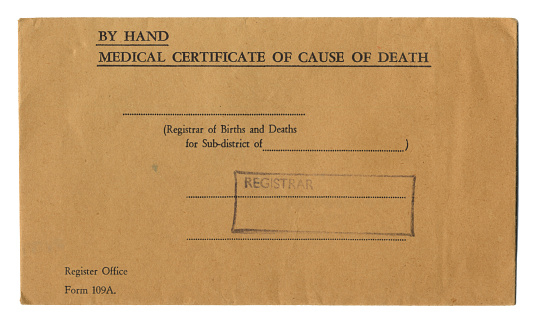Working as a funeral director is a career that comes with a unique set of challenges and responsibilities. While the job itself can be rewarding, there are some things about the work that are rarely spoken about and often only learned through experience.
Here are 12 things no one told me when I became a funeral director, but I wish they had. So, I am sharing them here so that aspiring funeral directors can be better prepared for the emotional, physical, and financial demands that await them.
1. Death is not pretty:

2. Long and erratic hours:
Funeral directors work around the clock since death doesn't follow regular office hours. People can die at any time, including weekends and holidays, and we must be prepared to drop everything and respond.
This means disrupting our personal lives and sacrificing private time and family events, often without notice. Such demanding hours and irregular schedules are challenging, so learning to cope with an unconventional schedule is paramount to avoiding burnout.
3. The physical demands:

4. The financial and business side:
Funeral directing is not just about supporting grieving families; it also involves running a business. From maintaining financial records to marketing and building customer relationships, funeral directors must become adept in managing a funeral home's operational and economic aspects.
While there's a stereotype that funeral directors are raking in profits from the grief of others, the reality is far from it. Funeral homes face rising operating costs, including merchandise, equipment, overhead, and staff salaries. Moreover, families are becoming more cost-conscious, shifting towards cremations, direct burials, and more straightforward services. Funeral directors often find themselves balancing the financial needs of their business with the economic realities of the families they serve.
5. The paperwork:

6. Constant adaptation:
In today's rapidly changing society, funeral traditions have significantly transformed. Gone are the days when traditional religious ceremonies were the unquestionable norm. Families have different expectations and desires regarding saying goodbye to their loved ones. They seek more personalized and unique funerals that genuinely capture the essence of the deceased's life and individuality. As a result, funeral directors are constantly challenged to keep up with these evolving preferences alongside technological advancements and shifting cultural demographics.
To remain relevant in this dynamic landscape and meet the demands of today's families, funeral directors must be adaptable and open to embracing new ideas. This means staying informed about the latest trends, exploring innovative funeral options, and understanding a multicultural society's diverse needs and expectations. By continually adapting our services and successfully meeting the changing needs of the people we serve, we can ensure that each ceremony is a heartfelt and meaningful tribute to the deceased.
7. The need for ongoing education:

8. Interacting with the living:
Contrary to popular belief, funeral directors spend most of their time with the living rather than the dead. While embalming and preparing the remains for viewing are vital aspects of our work, they are a minor part of the job.
Much of the focus is on interactions with the families we serve and the community. Building strong connections with grieving families is integral to a funeral director's role. However, little did I know that these connections could extend far beyond the funeral service. Funeral directors often serve as a source of comfort long after the funeral. We understand that the pain of loss continues long after the final goodbye, and we reach out to families in the weeks, months, and even years following their loss. Whether through a simple phone call or attending memorial events, we want to provide ongoing support and remind families that they are not alone in their grief. Such lasting personal connections can often lead to lifelong friendships and, in some cases, a sense of extended family. Some of my most cherished friends were people I met by arranging funerals for their loved ones.
9. The emotional toll:
Funeral directors are constantly surrounded by death and grieving families, listening to heart-wrenching stories and witnessing raw emotions. We see firsthand the deep pain that comes with losing a loved one as we help families navigate through the most challenging time of their lives. Still, nothing truly prepares you for the enormous emotional toll that dealing with grief daily can take on your well-being. The weight of each family's pain can sometimes be overwhelming and can leave a lasting impact on funeral directors. Observing countless families grieving and dealing with their pain requires tremendous emotional resilience.
10. Thoughts of our death:

11. The importance of self-care and support systems:
We may often neglect self-care in a vocation centered around caring for others. Therefore, it is crucial to prioritize our physical and mental health, establish boundaries, and allow ourselves time for rest and rejuvenation.
Engaging in activities outside of work, pursuing hobbies, and spending time with loved ones are all necessary to maintain a healthy work-life balance and prevent compassion fatigue. Building a solid professional network is another way. Connecting with colleagues through participation in industry associations, conferences, or online forums is a way to share experiences and discuss our unique challenges in the industry.
12. And the rewarding moments:



